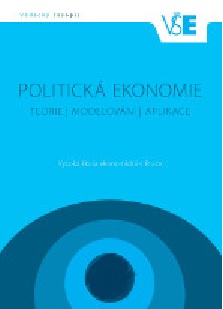Understanding the Dynamics of Political
Economy in Relation to Energy Transition
for G7 Economies
Understanding the Dynamics of Political
Economy in Relation to Energy Transition
for G7 Economies
Author(s): Mohammed Moosa Ageli, Yanyan Qiu, Yan Yan, Ramez Abubakr Badeeb, Zeeshan KhanSubject(s): Economy, Energy and Environmental Studies, Political Sciences, Governance, Economic policy, Environmental and Energy policy, Socio-Economic Research
Published by: Vysoká škola ekonomická v Praze
Keywords: GDP; total natural resources; political risk index; technological innovation; MMQREG, G7 economies
Summary/Abstract: This research covers the literature gap by investigating the factors of economic expansion(GDP), total natural resources (TNRNT), political risk index (PRI) and technological innovation(TI) and their impact on the renewable electricity output (REOT) in the G7 economies, coveringthe period 1990–2022. The research utilizes novel MMQREG as the primary method, whileBSQR is a non-parametric robustness check method. A pairwise Dumitrescu–Hurlin causalitytest is employed to find out the causal connection between variables. The diagnostic outcomesshow that the modelled variables are static after the first difference while long-run equilibriumis also present. Moreover, the outcomes suggest that GDP negatively influences REOT acrossquantiles while TNRNT and PRI stimulate the use of REOT in G7 economies across quantiles.Moreover, TI positively influences REOT but is inconclusive across quantiles. The robustnesscheck analysis provides similar and valid outcomes. Lowering political risk is also consideredimportant for energy transition in terms of cleaner energy.
Journal: Politická ekonomie
- Issue Year: 72/2024
- Issue No: 2
- Page Range: 255-277
- Page Count: 22
- Language: English

